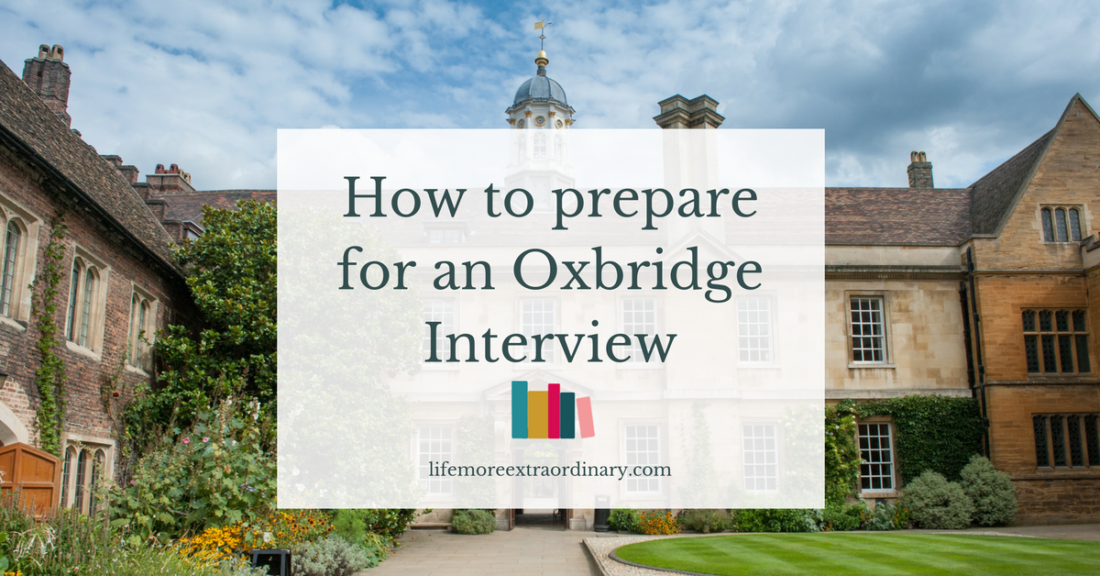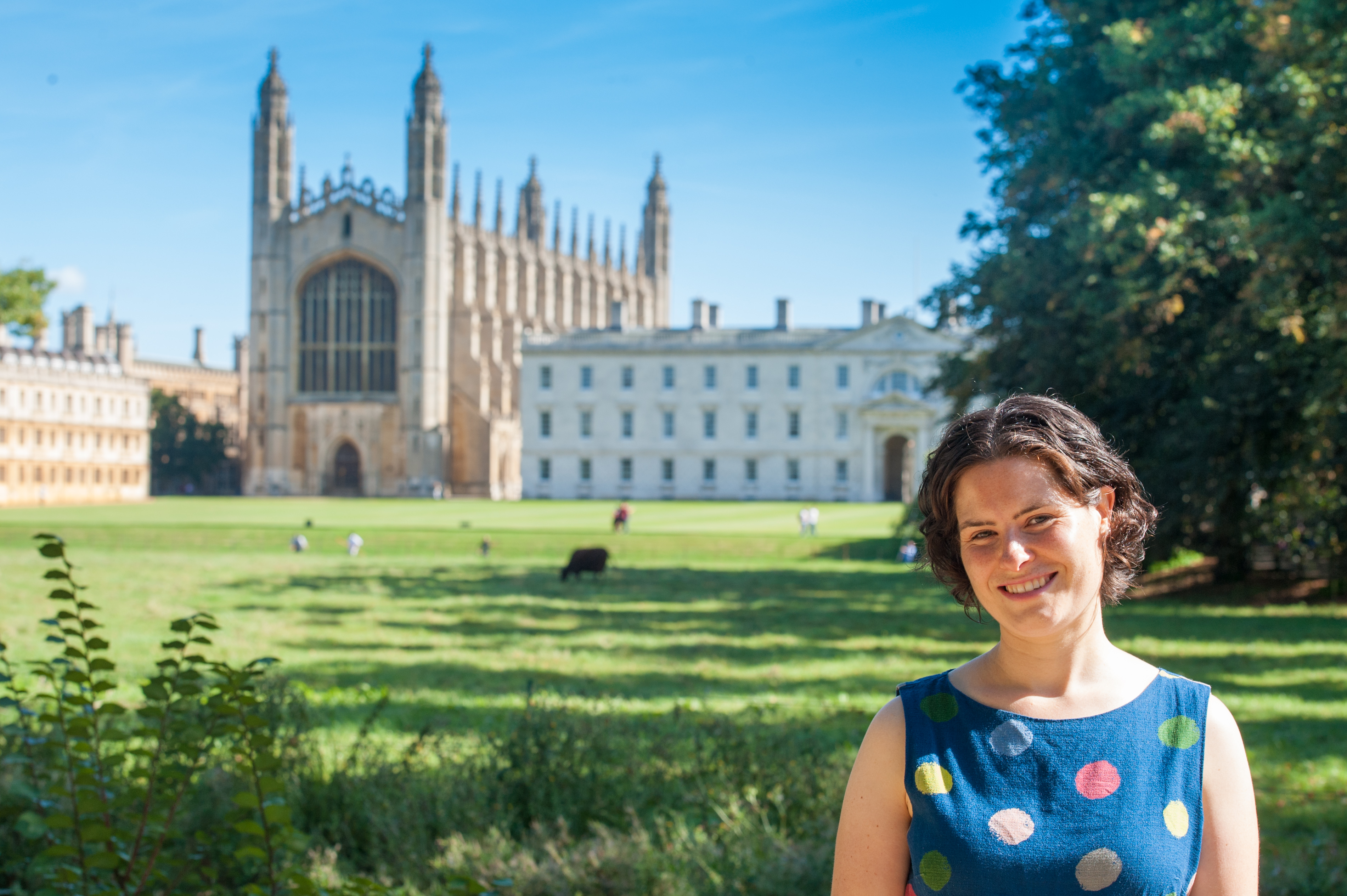How to prepare for an Oxbridge Interview
 It's the final hurdle. You've written a stellar personal statement, sent off your very best work, taken the aptitude tests and now you're going for interview. But, this is the trickiest, scariest part of the process because of all the stories that surround this mysterious meeting. Today, I'm going to show you how to prepare for an Oxbridge interview, boost your confidence and have your mind in the right place for success.
It's the final hurdle. You've written a stellar personal statement, sent off your very best work, taken the aptitude tests and now you're going for interview. But, this is the trickiest, scariest part of the process because of all the stories that surround this mysterious meeting. Today, I'm going to show you how to prepare for an Oxbridge interview, boost your confidence and have your mind in the right place for success.
How to prepare for an Oxbridge Interview
1. Know your stuff
You're applying for one of the greatest universities in the world. They expect you to be passionate and knowledgeable about the subject you're applying for, even if you've never studied it before. Before you go for interview make sure that you have:
- A thorough command of everything that you've learned at A-Level that is at all relevant
- You have done plenty of further reading so that you're familiar with concepts that go beyond your A-Level course
Now, when I say make sure you've got a thorough command of everything you've learned at A-Level I don't mean you've got to revise for your Oxbridge interview as if it were an A-Level exam. You probably won't need the minutiae of case studies and facts. However, you do have to have a confident command of the breath of material that you've covered and be particularly able to talk about your favourite areas of your subject.
2. Read your personal statement through beforehand
Your personal statement is a bit like a profile on a dating website. The admissions tutors have read it and decided that they want to meet you to learn more. The interview is like the first date. At interview you have to show a strong resemblance to the person you represented in your personal statement.
For example, if you wrote about a book or an article you have read in your personal statement you need to be prepared to talk about it at length in your interview. If you said that the most fascinating area of geography for you was how digital distribution is reshaping the built environment then you need to be able to talk about it with examples of what you've read as well as real life cases where the world is changing.
Basically, your personal statement is your conversation starter. If you can't carry on the conversations that you've initiated then you will look a bit foolish.
You might be interested in: How to write a Cambridge Personal Statement (Interview with the Admissions Tutor of Newnham College, Cambridge)
4. Wear comfortable clothes
This may sound trivial but it's not. It's all about helping you to perform at your best:
- Wear layers to keep you warm
- Wear clothes in which you'll be comfortable and can walk long distances
- Wear clothes that make you feel confident and make you feel very much like yourself
Both Oxford and Cambridge are full of very old and very drafty buildings so being warm is essential. In Oxford you're often asked to interview at several colleges over a period of days so make sure you're reading to walk around the town to different places. Finally, be yourself.
This was summarised by Steve Watts, a Cambridge Admissions Tutor, when I interviewed him:
Does it matter what people wear?
Not a bit. Be comfortable (December in Cambridge – be warm enough!). If a student feels empowered by dressing up a bit, let them do so. If they feel happier in casual clothes, that’s also fine. Our only requirement is that they don’t worry about what they are wearing (collar too tight, shoes new and agonising) because that gets in the way of concentrating on the questions being asked – and that’s why an applicant is there.
5. Do practice interviews beforehand
The best way to prepare for an interview is to do a practice interview. Your school might be able to arrange one for you or there are many, many agencies that can find an Oxbridge graduate who is willing to do a mock interview.
If you're struggling to find someone ask someone who has a degree in the subject you want to study. If they're not sure what to ask get them to model their questions on these ones remembered by successful Oxbridge candidates.
7. Get your travel plans organised
When I went for my own Cambridge interview I was late. My mum missed the correct turning off the A14 and my dad and I ended up abandoning her in the car as we raced through Cambridge city centre to find the college. I got there just in time. My dad has always been a bit of a stress-head about lateness and has never let my mum forget that she nearly made me late for my Cambridge interview.
Don't let this happen to you.
Plan your journey and include lots and lots of contingency. Make sure you get there on time!
8. Get your mindset sorted
You've applied to Oxford or Cambridge. You know they're the best universities in the UK and well within in the top ten of world universities. There must be something inside you that makes you believe that this could be possible for you.
So many students apply to Oxbridge with a bit of a chip on their shoulder. They have applied because their school has twisted their arm or their parents really want them to. However, they don't believe that they're not clever enough, posh enough or rich enough to either be offered a place or to fit in.
You're immediately putting yourself at a disadvantage if you're letting yourself believe these things and that's ridiculous. You need to give yourself the very best chance of getting in. That's not about being arrogant and feeling entitled. It's about bolstering your inner confidence so that you can do your best.
Do these two things to help yourself feel up to the test at hand:
- Write down your thoughts and feelings about the interview process. Write down everything that makes you think you're unworthy. You may take several writing sessions to do this. When you're done go back and see which things are plainly silly when you look at them again, and which ones you can actively do something about it. Now do something about them!
- When you go for interview and meet the lecturers, current students and other prospective students go with an open mind. Notice how many have regional accents, seem to go to schools like yours and come from a ‘nice normal background'. This should be proof that you will not feel lonely and like a social outcast when you get there.
Over to you…
Now all you have to do is follow these steps. I know you can give this your best shot and find out once and for all if you're the right fit for Oxford or Cambridge. There is no shame in failing this test, it's highly competitive, you just need to give it your best shot to find out if this is your destiny.
In the comments below let me know:
- If you have any other worries or concerns about your Oxford or Cambridge interview
- If you've got any other top tips about how to prepare for an Oxbridge interview
If you found this article useful check out my How to apply to Oxbridge and actually get in page. There are lots of articles there to help you to succesfully get through the entire Oxbridge application process.

